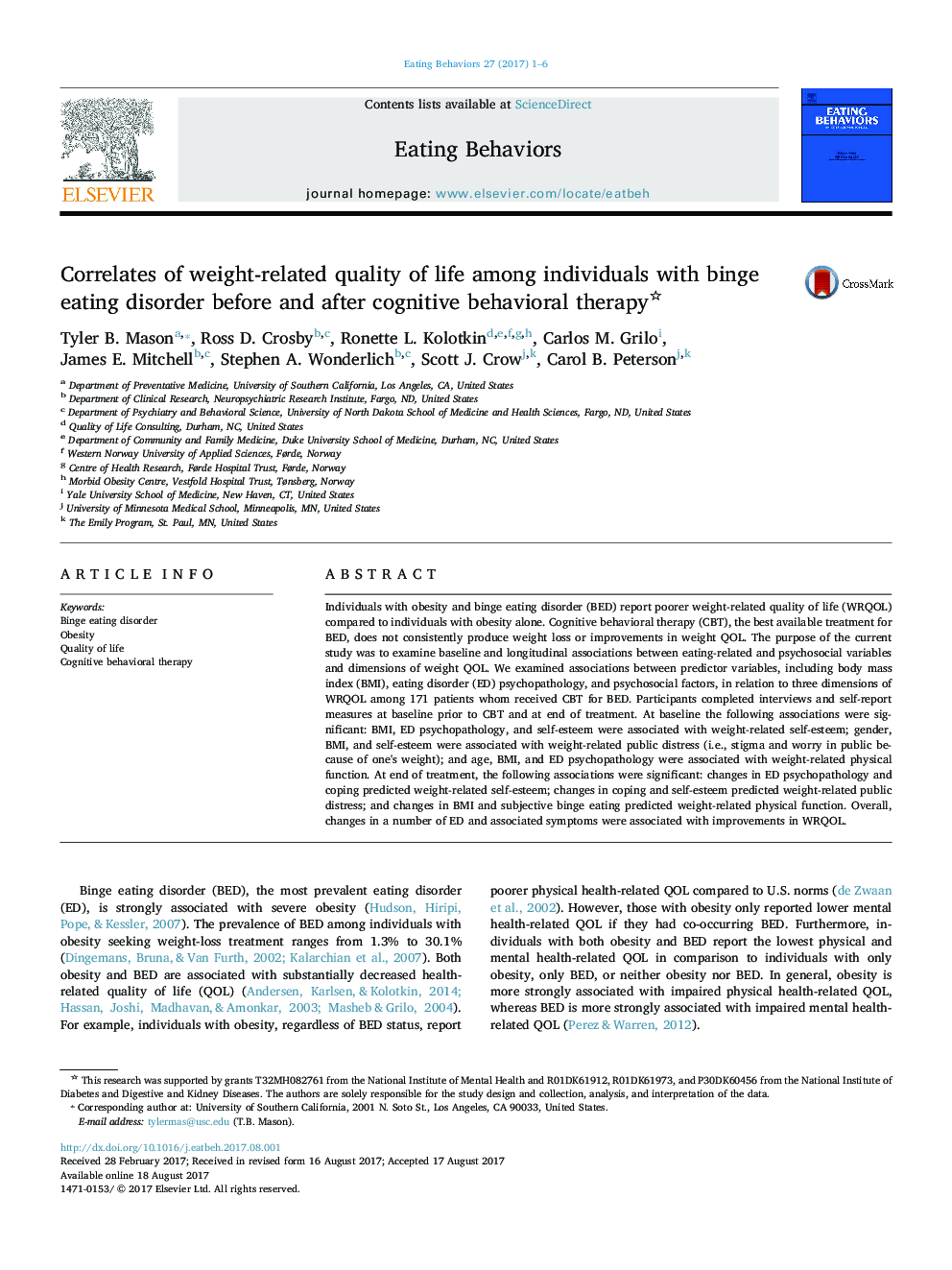| کد مقاله | کد نشریه | سال انتشار | مقاله انگلیسی | نسخه تمام متن |
|---|---|---|---|---|
| 5038740 | 1472876 | 2017 | 6 صفحه PDF | دانلود رایگان |
- Obesity and binge eating disorder are related to poor quality of life (QOL).
- We examined predictors of three dimensions of weight-related QOL.
- Associations were examined at baseline and after cognitive behavioral therapy (CBT).
- Increases in weight related QOL are associated with changes in a number of symptoms.
Individuals with obesity and binge eating disorder (BED) report poorer weight-related quality of life (WRQOL) compared to individuals with obesity alone. Cognitive behavioral therapy (CBT), the best available treatment for BED, does not consistently produce weight loss or improvements in weight QOL. The purpose of the current study was to examine baseline and longitudinal associations between eating-related and psychosocial variables and dimensions of weight QOL. We examined associations between predictor variables, including body mass index (BMI), eating disorder (ED) psychopathology, and psychosocial factors, in relation to three dimensions of WRQOL among 171 patients whom received CBT for BED. Participants completed interviews and self-report measures at baseline prior to CBT and at end of treatment. At baseline the following associations were significant: BMI, ED psychopathology, and self-esteem were associated with weight-related self-esteem; gender, BMI, and self-esteem were associated with weight-related public distress (i.e., stigma and worry in public because of one's weight); and age, BMI, and ED psychopathology were associated with weight-related physical function. At end of treatment, the following associations were significant: changes in ED psychopathology and coping predicted weight-related self-esteem; changes in coping and self-esteem predicted weight-related public distress; and changes in BMI and subjective binge eating predicted weight-related physical function. Overall, changes in a number of ED and associated symptoms were associated with improvements in WRQOL.
Journal: Eating Behaviors - Volume 27, December 2017, Pages 1-6
